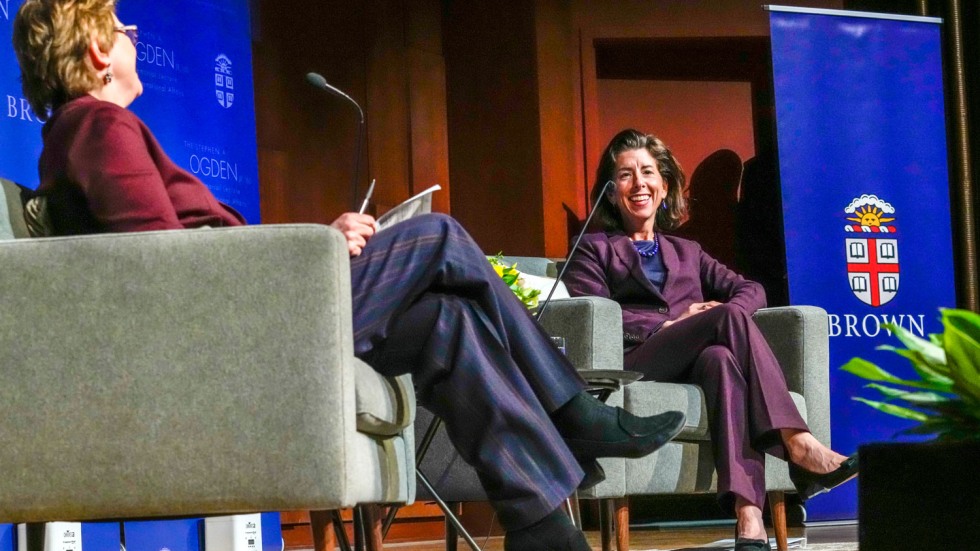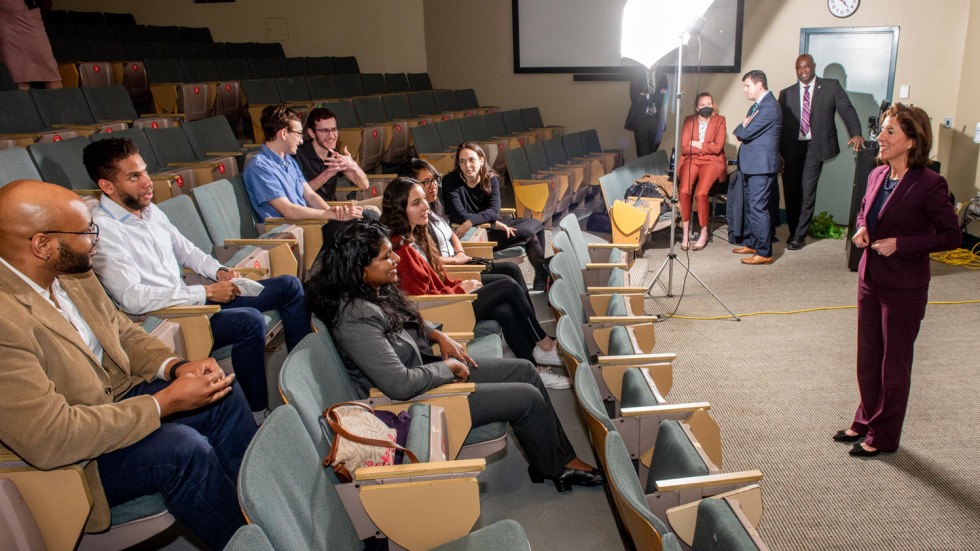PROVIDENCE, R.I. [Brown University] — On the night of U.S. President Joe Biden’s State of the Union address, one member of his cabinet was far away from the Capitol in a secret, secure location: Secretary of Commerce Gina Raimondo.
Raimondo said she was honored to serve as this year’s “designated survivor,” a senior government leader chosen annually to leave Washington, D.C., on the day of the address and prepare to succeed the president, should tragedy strike.
But the full weight of the responsibility didn’t hit her until the moment when she was briefed by her extensive security team and introduced to the person who would, in the event of an emergency, swear her in.
“And all of a sudden, it came over me,” Raimondo said with a panicked expression, eliciting laughter during a Tuesday, March 15, event at Brown University. She thought, “don’t let anything happen!”
Raimondo, a native Rhode Islander who served as the state’s governor before joining Biden’s cabinet, visited Providence to deliver the 101st Stephen A. Ogden Jr. ’60 Memorial Lecture on International Affairs at Brown. Since 1965, dozens of heads of state, diplomats and observers of the international scene have participated in the series, including, most recently, former British prime minister Theresa May and New York Times editor A.G. Sulzberger, a Brown alumnus.
In a presentation titled “Growth, Innovation and Equity: Ensuring American Global Competitiveness in the 21st Century," Raimondo shared ideas on how the U.S. can continue to compete globally by creating an innovative, equitable and collaborative economy.
“The world wants and depends on a strong America,” Raimondo said to a crowd of more than 500 students, Brown employees and local residents who listened both online and in person at the Salomon Center for Teaching. “Let’s get back to the business of investing in what makes us strong — and let’s do it with an eye toward equity so we are unified as a nation.”

